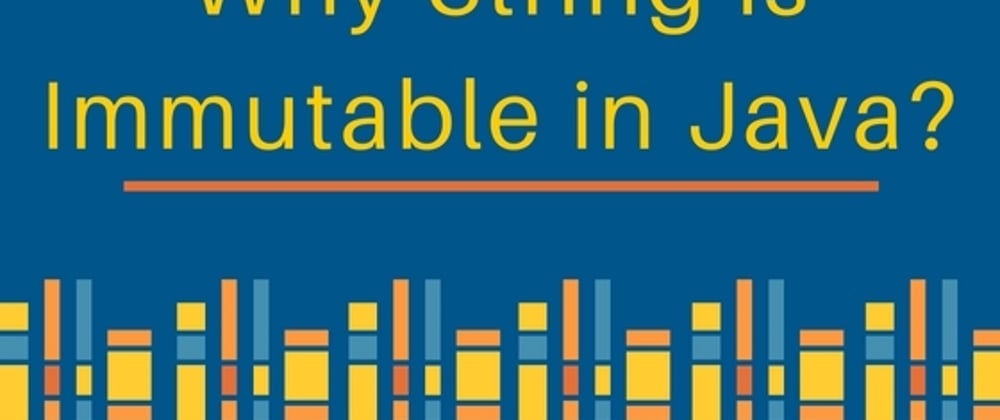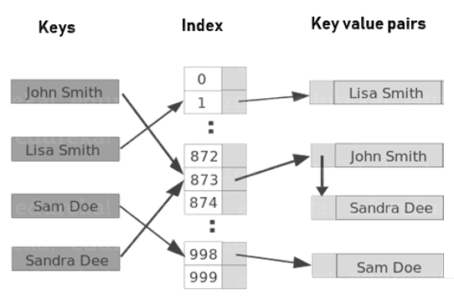Why Are Strings Immutable in Java? Insights right into Memory Effectiveness
Why Are Strings Immutable in Java? Insights right into Memory Effectiveness
Blog Article
What Is Unalterable Strings and How It Functions
In the realm of programming, understanding the concept of immutable strings is critical for producing robust and safe applications. Immutable strings refer to strings that can not be altered after they are developed, guaranteeing data stability and predictability within the code. This basic concept plays an important duty in numerous programming languages and offers a special strategy to managing data. By discovering the complexities of just how immutable strings function, one can reveal a world of advantages and opportunities that can raise the top quality and performance of software advancement.
The Fundamentals of Immutable Strings
Unalterable strings, as a fundamental principle in programs, are personality sequences that can not be transformed when they are developed. This implies that when a string is assigned a value, that value can not be modified. In languages like Python and Java, strings are unalterable items, resulting in different ramifications in regards to memory administration and data integrity.
Among the key advantages of unalterable strings is that they offer a feeling of safety and security in information adjustment. Given that the material of an unalterable string can not be customized, it makes sure that the initial data remains intact, lowering the danger of unplanned adjustments during program execution (Why are strings immutable in Java?). This home likewise simplifies debugging processes, as developers can rely on that when a string is specified, its worth will not be unintentionally changed
Furthermore, immutable strings help with efficient memory use. When a brand-new string is created based on an existing one, instead than changing the initial string, the new worth is saved separately. This strategy improves efficiency by decreasing memory fragmentation and simplifying memory allowance procedures. Overall, understanding the basics of immutable strings is important for mastering shows principles and maximizing code efficiency.
Advantages of Unalterable Strings
Structure upon the protection and performance benefits of unalterable strings, their advantages expand to improving code dependability and simplifying simultaneous shows tasks. By being unalterable, strings can not be modified after development, which eliminates the threat of unexpected modifications in the information they save. This inherent immutability ensures that once a string is developed, its worth stays continuous throughout the program's execution, reducing the chances of pests triggered by unanticipated modifications.
Furthermore, unalterable strings add to code integrity by making it simpler to reason about the state of a program. Since strings can not be transformed, programmers can trust that a string will certainly always hold the exact same worth, streamlining debugging and maintenance efforts. This predictability results in extra secure and dependable codebases.

Application in Programs Languages
Within numerous programs languages, the unification of immutable strings is a fundamental aspect that affects exactly how information is managed and controlled within code structures. The execution of unalterable strings varies throughout different shows languages, with each language offering its own mechanisms to support this investigate this site idea.

In comparison, languages like C and C++ do not have built-in assistance for unalterable strings. Designers in these languages should manually apply immutability by enforcing policies within their code to stop direct alterations to string items.
Finest Practices for Dealing With Unalterable Strings
When handling immutable strings in shows languages like Java and Python, sticking to finest techniques guarantees efficient and safe data control. Among the essential best techniques is to utilize StringBuilder or StringBuffer instead of directly controling strings, specifically when handling extensive concatenation procedures. These classes supply mutable choices for string manipulation, helping to prevent unneeded memory appropriations and boosting efficiency.
One more best practice is to use string interpolation or format operates offered by the language rather than hands-on concatenation. This not just enhances readability yet additionally aids in preventing typical challenges such as unintentional string alterations. Additionally, when functioning with sensitive data such as passwords or API keys, it is critical to prevent saving them as plain message in unalterable strings. Making use of secure storage space mechanisms like char arrays or specialized collections for handling delicate information helps mitigate safety and security threats related to unalterable strings.
Real-world Applications and Instances
Exploring functional executions of immutable strings in numerous sectors reveals their substantial influence on information integrity and system dependability. In the medical care market, immutable strings play an essential duty in making sure the security and discretion of client information. By avoiding unapproved alterations to sensitive information such as clinical records and prescriptions, immutable strings help preserve conformity with stringent privacy laws like HIPAA.
Financial organizations also take advantage of the immutable nature of strings to improve the safety of customer data and transaction records. Unalterable strings help stop fraudulence and unapproved changes to monetary info, giving a robust protection against cyber hazards and guaranteeing the count on and confidence of clients.

Final Thought
In final thought, immutable strings are taken care of and unchangeable Read More Here sequences of characters that offer advantages such as string safety and security and enhanced efficiency in shows. They are applied in different programs languages to make certain data honesty and protection. Finest techniques for dealing with unalterable strings consist of staying clear of direct alterations and making use of methods that return brand-new string objects. Real-world applications of unalterable strings consist of data security, caching, and string control tasks.
Unalterable strings refer to strings that can not be altered after they are developed, making sure data stability and predictability within the code. When a brand-new string is produced based on an existing one, rather than customizing the initial string, the new value is stored individually.In languages like Java and Python, strings are immutable by default, implying that as soon as a string object is produced, its worth can not be changed - Why are strings immutable in Java?. Finest methods for functioning with unalterable strings include staying clear of straight adjustments and utilizing techniques that return brand-new string items. Real-world applications of unalterable strings consist of data security, caching, and string manipulation tasks
Report this page